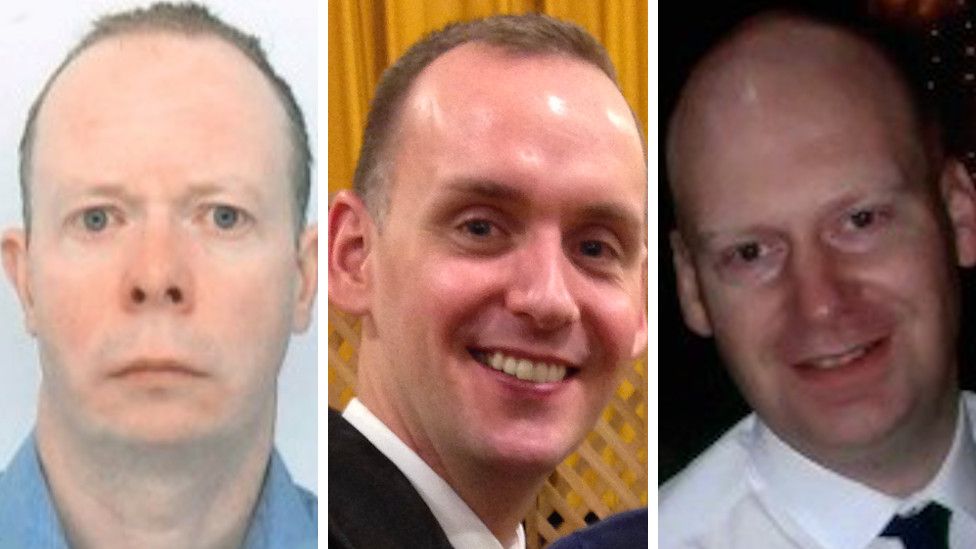Reading stabbings: Saadallah joined Libyan terror group
- Published

(L-R) David Wails, Joe Ritchie-Bennett and James Furlong died at the scene of the attack in Forbury Gardens
A killer who stabbed three men to death in a Reading park joined a terrorist group in Libya a decade before moving to the UK, an inquest has heard.
Khairi Saadallah killed James Furlong, 36, David Wails, 49, and Joseph Ritchie-Bennett, 39, in June 2020.
The Libyan refugee shouted "Allahu akbar" in Forbury Gardens before attacking the men.
An inquest at the Old Bailey heard he joined a proscribed Islamist group in 2011.
The terrorist group was created during the Arab Spring uprising against Colonel Muammar Gaddafi.
The inquest heard Saadallah, who was jailed for life for the Reading attack, fled the group when he was asked to engage in torture.
Khairi Saadallah was given a whole-life term for murdering the three friends
Det Ch Supt Oliver Wright, from Thames Valley Police, told the court he believed Saadallah to be a "complex individual" who was radicalised during his time in Libya.
He told the hearing Saadallah maintained an "enduring interest" in Islamic extremism and suffered PTSD from his experiences in Libya.
Years later, while imprisoned in HMP Bullingdon in 2017, Saadallah was reportedly "often keen" to speak with well-known convicted Islamist terrorist Omar Brooks.
Ministry of Justice notes, titled "Candidate believed to be radicalised", were shown to the court.
They said: "Intelligence suggests that (Saadallah) is often keen to talk to Mr Brooks. (Saadallah) is young, impressionable and volatile.
"Due to the fact that Brooks is a well-known extremist preacher, this worries staff."
A memorial was unveiled at the Forbury Bandstand exactly three years after the attack
The court heard Saadallah's phone contained an image of a flag associated with Islamic State terrorists, as well as an image of two men in combat gear, one of whom is performing the "one-fingered salute" linked with the same group.
He also had multiple photographs of him carrying guns, including an assault rifle, in an image thought to have been taken during his time in Libya.
Det Ch Supt Wright told the court it was "difficult to see during that time exactly what was going on in his head", but that Saadallah's interest in Islamic extremism was "enduring".
The inquest continues.
Follow BBC South on Facebook, external, X, external, or Instagram, external. Send your story ideas to south.newsonline@bbc.co.uk, external.
Related Topics
- Published29 July 2020
- Published11 January 2021